We are back in Nairobi after spending two weeks in the three counties that our project covers. We visited six distributions and five water pans in this round of travel. Not only are these long distances away, but they are also very difficult to access or locate. Bumpy, rough roads have become a normal, every day experience for us but this time we had the added challenge of using trails and fields to visit the water pans. The local chairperson for one of the sites was unable to direct us to the site since she walks the cross-country shortcuts and never goes along any of the roads. A local person graciously guided our vehicle across a path that dead-ended at a wide, deep “ditch” that someone had dug across the path. Apparently, prior to this, he had been requested to end his ditch a few feet before the road. His response however had been that it is his property to do with as he wishes. So we drove through some fields, zig-zagging between bushes and lots of low thorny trees. “Between” was not wide enough to prevent our vehicle from receiving many scratches but worse, a large thorn punctured our tire and some time later we were faced with a flat tire. Such adventure!
One of the ways by which, as IRMs, we are required to assess the success of our project is to conduct individual interviews, as well as to convene focus group discussions. We would like to share one such focus group meeting with you – as well as some neat photos to illustrate our story.
This particular gathering consisted of six women and four men who were waiting in the shade of the same tree. This group lives “far from here” (the distribution site) – probably in excess of 20 km. These younger women had two to five children each and three of them were carrying their youngest babies on their backs. An older child had fallen asleep in one of the wheelbarrows that were very prevalent at this distribution. This was a different form of food transport than we had noted in other areas. We were informed that wheelbarrows are used for “everything” – carrying water, food, wood and apparently, they make good seats as well!
We were told that there has been no consistent rain here for four or more years. The men do not have any employment. “No, we are farmers.” The one man has no farm and no employment but makes some money from charcoal burning. However, there are very few trees left where he lives as many others do the same.
Elephants are a significant problem in this area. As the drought continues, elephants make their way to the farms in search of water, eating the few items that are still growing. They do a lot of damage to the fields and there have been three deaths in the area related to elephant-human interaction. One man in the focus group was fearful for his family, as well as for his return trip to his home about 10 kilometres away since elephants had recently been sited nearby. There is much frustration expressed at the slow response to control this situation. The elephants are protected by law and if you kill one, you will be imprisoned. (This same day there was a demonstration on the road between the two distribution areas we planned to visit that day. The demonstration was in the form of a large tree that had been chopped down to totally block a much used road to Tanzania, as well as some tires burning on the road.)
In this group the women do not even have opportunity or access to any form of casual work. The group stated that they used to have a few goats each but they died due to lack of food and water. One has some chickens and her family is able to eat eggs. Before the first food distribution most had one meal, and sometimes “white tea” (hot milk with tea) with no accompanying food – they consider this to be a meal as well.
Their water source is 38 km away. It is a borehole and they must pay five shillings for 20 litres of water. Sometimes they use a donkey to help carry the water but there is only one donkey for 20 families.
All but one of the people in our “wheelbarrow” focus group live on a “shamba” (farm) consisting of two to ten acres on which they used to be able to grow maize, beans, cassava and watermelons. They are going to plant again in hopes of rain. When asked how they manage to stay cheerful, they replied “We are used to this.” They expressed much appreciation for the food and are committed to working hard on the water pans as promised. They are very enthusiastic about the possibility of having a water source nearer to their homes.
We celebrate with those communities that have received some rain in recent days. Several of the water pan sites – some new and some being deepened or widened – now have some water in them! Even a small amount of rain will run into these locations due to their design and location. The beneficiaries are so thrilled and inspired to see such promise!!


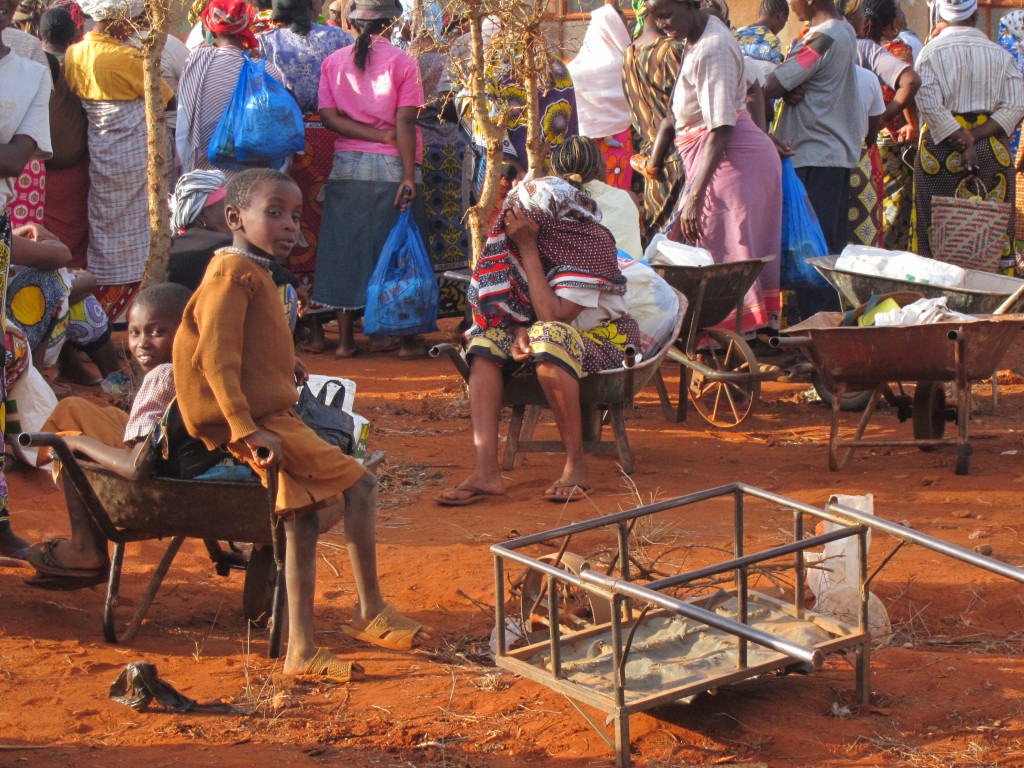
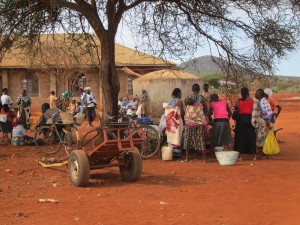
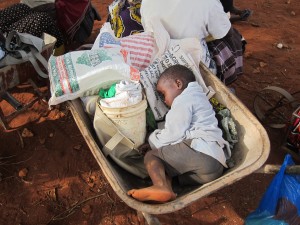
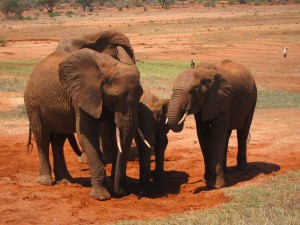
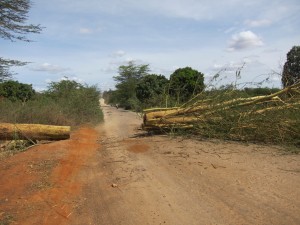
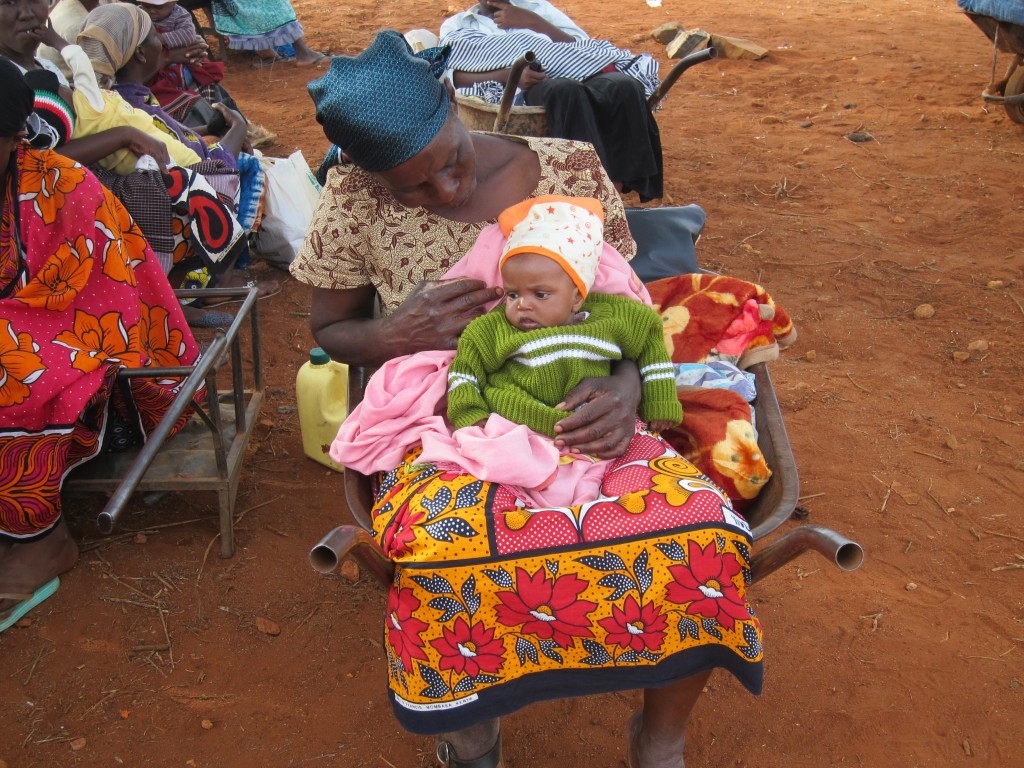

I always enjoy reading your updates – continued blessings on your fantastic work.
its great to have an insight of what it really happening in the world.. enjoy reading your blog and hearing of your adventures…
Take care,
Bill Burns
Hey mom and dad,
Thanks again for giving us a glimpse into the work that you are doing and the life that you and others are experiencing. May God continue to bless you in your work as you serve in His Kingdom.
Love,
James and Joy, Kirsten, Matthew, Emily
Thanks for the update and the pictures- we continue in prayer for the both of you as you continue in this good work. May God bless you and keep you safe and healthy!
Hard to believe that we take things like wheelbarrows for granted. They sit and rust between uses, and when we feel they no longer ‘look good’ we go out and find a replacement and send the old one to the dump. What would I give to be able to share that wealth with our brothers and sisters in Kenya! Harry and Annie, we live vicariously through your tenure in Africa, being a little more generous towards World Renew in the hopes that those gifts will reach YOUR program. May our God bless you as you speak face to face with these, His African children, who seem so much happier despite their difficulties, than we are with all our wealth. May God forgive us and help us to share what we have from His hand.
Heartbreaking to think of what these folks deal with on an ongoing basis just to survive…and sadly they seem to accept their lot in life. It is encouraging to hear that, thanks to your efforts, some communities will at least be able to more readily access water, something we all take for granted. Thanks for sharing.
Annie and Harry
I really enjoy your Blogs. They are so informative and you write them so well. Very gifted.
The family is all well and busy. Annie, I have been sitting Elliott for 2 days now and I am have a great time with him. He is so easy.( Hope I haven’t spoken too soon!!)
Miss you and Harry.
Keep well
Lynda
there is a real fragile balance in this area; limited resources, peoples needs, conservation considerations, peoples needs…. and yet the people smile, and exhibit a quiet beautiful dignity. They teach us so much.
Hi Harry and Annie,
It is a real eye opener, when one looks at your pictures.
Harry maybe an unfair question, but would it not be possible to get some heavy equipment over there ?
We remember both of you in our prayers, and hope to see you in January.
Love
John & Shirley